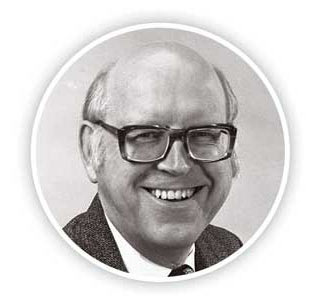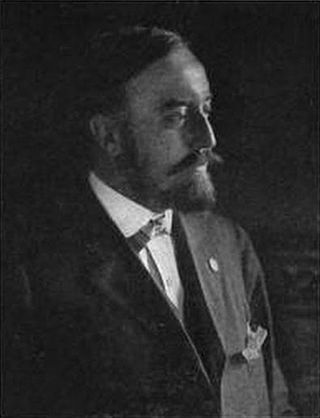Related Research Articles

Simon Fraser University (SFU) is a public research university in British Columbia, Canada. It maintains three campuses in Greater Vancouver, respectively located in Burnaby, Surrey, and Vancouver. The 170-hectare (420-acre) main Burnaby campus on Burnaby Mountain, located 15 kilometres (9.3 mi) from downtown Vancouver, was established in 1965 and comprises more than 30,000 students and 160,000 alumni. The university was created in an effort to expand higher education across Canada.

Carnegie Mellon University (CMU) is a private research university in Pittsburgh, Pennsylvania, United States. The institution was established in 1900 by Andrew Carnegie as the Carnegie Technical Schools. In 1912, it became the Carnegie Institute of Technology and began granting four-year degrees. In 1967, it became Carnegie Mellon University through its merger with the Mellon Institute of Industrial Research, founded in 1913 by Andrew Mellon and Richard B. Mellon and formerly a part of the University of Pittsburgh.

The Heinz College of Information Systems and Public Policy, also known as Heinz College, is the public policy and information college of Carnegie Mellon University in Pittsburgh, Pennsylvania. It consists of the School of Information Systems and Management and the School of Public Policy and Management. The college is named after CMU's former instructor and the later U.S. Senator John Heinz from Pennsylvania.

Allen Newell was an American researcher in computer science and cognitive psychology at the RAND Corporation and at Carnegie Mellon University's School of Computer Science, Tepper School of Business, and Department of Psychology. He contributed to the Information Processing Language (1956) and two of the earliest AI programs, the Logic Theorist (1956) and the General Problem Solver (1957). He was awarded the ACM's A.M. Turing Award along with Herbert A. Simon in 1975 for their contributions to artificial intelligence and the psychology of human cognition.
The Technical University of British Columbia (TechBC) was a special-purpose university in Surrey, British Columbia, Canada, that operated from 1999 until 2002, when it was closed by the British Columbia government. Its students and programs were transferred to Simon Fraser University to become the core of SFU Surrey and the School of Interactive Arts and Technology.

Henry Hornbostel was an American architect and educator. Hornbostel designed more than 225 buildings, bridges, and monuments in the United States. Twenty-two of his designs are listed on the National Register of Historic Places, including the Oakland City Hall in Oakland, California and the Soldiers and Sailors Memorial Hall and Museum and University Club in Pittsburgh, Pennsylvania.

Bill Kovacs was a pioneer of commercial computer animation technology.
The terms design computing and other relevant terms including design and computation and computational design refer to the study and practice of design activities through the application and development of novel ideas and techniques in computing. One of the early groups to coin this term was the Key Centre of Design Computing and Cognition at the University of Sydney in Australia, which for more than fifty years pioneered the research, teaching, and consulting of design and computational technologies. This group organised the academic conference series "Artificial Intelligence in Design (AID)" published by Springer during that period. AID was later renamed "Design Computing and Cognition (DCC)" and is currently a leading biannual conference in the field. Other notable groups in this area are the Design and Computation group at Massachusetts Institute of Technology's School of Architecture + Planning and the Computational Design group at Georgia Tech.
Simon Graeme Penny is an Australian artist, theorist, curator and teacher in the fields of digital cultural practices, embodied interaction and interactive art.

Randal E. Bryant is an American computer scientist and academic noted for his research on formally verifying digital hardware and software. Bryant has been a faculty member at Carnegie Mellon University since 1984. He served as the Dean of the School of Computer Science (SCS) at Carnegie Mellon from 2004 to 2014. Dr. Bryant retired and became a Founders University Professor Emeritus on June 30, 2020.

The Human–Computer Interaction Institute (HCII) is a department within the School of Computer Science at Carnegie Mellon University (CMU) in Pittsburgh, Pennsylvania. It is considered one of the leading centers of human–computer interaction research, and was named one of the top ten most innovative schools in information technology by Computer World in 2008. For the past three decades, the institute has been the predominant publishing force at leading HCI venues, most notably ACM CHI, where it regularly contributes more than 10% of the papers. Research at the institute aims to understand and create technology that harmonizes with and improves human capabilities by integrating aspects of computer science, design, social science, and learning science.
James George Mitchell is a Canadian computer scientist. He has worked on programming language design and implementation, interactive programming systems, dynamic interpreting and compiling, document preparing systems, user interface design, distributed transactional file systems, and distributed, object-oriented operating systems. He has also worked on the design of hardware for computer graphics, high-level programming language execution, and audio input/output.

The Faculty of Communication, Art and Technology (FCAT) is a faculty at Simon Fraser University (SFU) in British Columbia, Canada. It comprises five schools and programs, over three SFU campuses: Burnaby, Vancouver, and Surrey.

The Interactive Technologies Institute is a teaching and research institute of the Instituto Superior Técnico, which has its headquartered located in Lisbon, Portugal.

Heather Kelley is a media artist, writer and video game designer. She is a co-founder of the Kokoromi experimental game collective, with whom she produces and curates the annual Gamma game event promoting experimental games as creative expression in a social context. She regularly appears as a jury member for several computer gaming festivals. She is also a frequent public speaker at technology events.
Robert Henry Lindsay was a Canadian painter.
Sheelagh Carpendale is a Canadian artist and computer scientist working in the field of information visualization and human-computer interaction.
Julie Andreyev is a Vancouver-based multidisciplinary artist whose practice explores themes of animal agency and consciousness. Her ongoing Animal Lover work explores nonhuman animal agency and creativity through modes of interspecies collaboration and aleatoric methods. The Animal Lover projects seek to contribute towards an ethic of compassion and regard for the intrinsic worth of other-than-human individuals. She was born in Burnaby, British Columbia.

Darren Robert Gergle is an American Professor in Communication Studies and Computer Science at Northwestern University. He currently holds the AT&T Research Professorship in Communication at Northwestern University where he directs the Collaborative Technology Lab (CollabLab). The locus of his research centers on human-computer interaction and social computing. He focuses on the application of cognitive and social psychological theories to the design, development and evaluation of ground breaking communication technologies. His work is supported through grants from the National Institute of Mental Health, National Science Foundation, Google, Microsoft Research and Facebook.

Molly Wright Steenson is an American professor of design and a historian of architecture and technology. Currently, Molly is the president and CEO of the American Swedish Institute. Previously, she was the Carnegie Mellon University Vice Provost for Faculty, K&L Gates Associate Professor of Ethics and Computational Technologies, and Senior Associate Dean for Research in the College of Fine Arts at Carnegie Mellon University.
References
- ↑ "Olympics". Canadian Olympic Committee. 18 September 2011. Retrieved 2 January 2014.
- ↑ "Sailor's Olympic dream shattered by boycott".
- ↑ "Robert Woodbury university profile at [Simon Fraser University]". Archived from the original on 2018-05-18. Retrieved 2018-05-11.
- ↑ "Robert Woodbury's profile at Centre for Digital Media".
"Sailor's Olympic Dream Shattered by Boycott" http://virtual.recorder.ca/doc/Brockville-Recorder-and-Times/brockville_extra/2010031102/5.html. Brockville Recorder and Times, March 10, 2010
http://olympic.ca/team-canada/rob-woodbury/